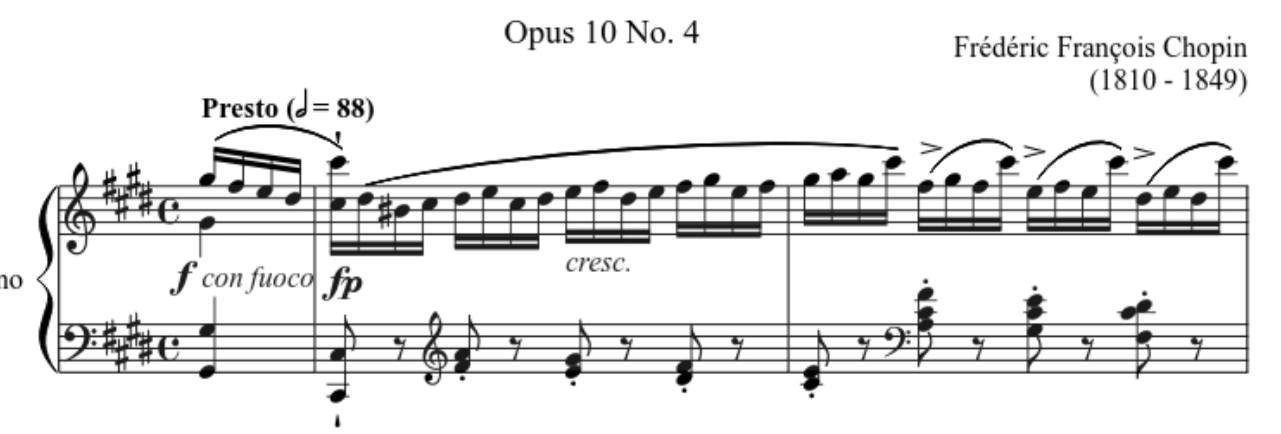For example, in Chopin's Etude Op 10, No. 4 (Torrent), the melody is initially in the right hand and it's accompanied by the left hand.

A few bars after, the right takes over the same accompaniment and the left hand takes over the exact same melody, but just in a lower octave.

Now my question is how the exact same melody should be treated when the left hand takes it over in a lower octave and the right hand takes over the same accompaniment. I have watched recordings of many different professional pianists performing this étude and in every recording, the chords in the right hand dominate over the melody in the left hand. My thoughts are, that the melody in the left hand should be the one which is played clearly and dominating over the right hand, while the right hand is simply doing the accompaniment. Is this thought correct? I was wondering if there's a technical explanation as to why most pianists suddenly don't pay attention to the left hand and let the right hand dominate, whilst the melody and the accompaniment are simply switched, but they still always focus on the right hand. Does the accompaniment suddenly become the melody when swapped? That doesn't make much sense. In Chopin's Op 10, No.8 (Sunshine), the left hand also takes the melody, so the right hand doesn't always take the melody I'd assume.
